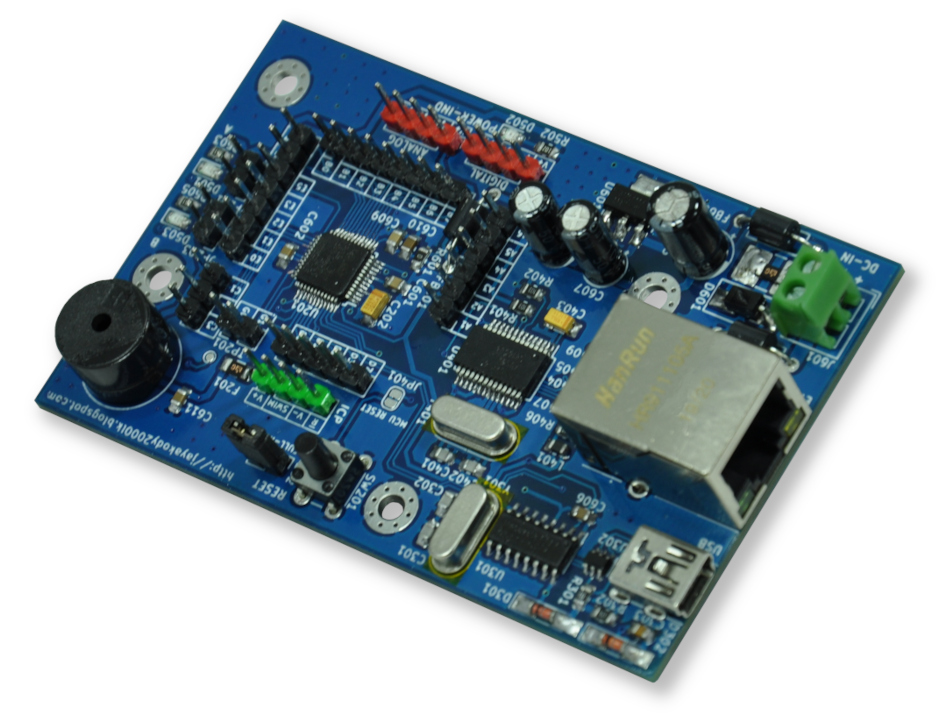This is an Ethernet development board based on STM8S005C6T6, designed specifically for IoT related applications. This development board consists of ENC28J60, 10BASE-T stand-alone Ethernet controller, CH340G, USB serial interface, 2 LED indicators, and passive buzzer unit.
The firmware framework for this development board has been developed using SDCC. To enable IPv4 support, we convert the EtherCard driver, which is available for the Arduino platform. The current version of this driver supports all other EtherCard functions except TCP support.
In the given design, the SPI terminals of the MCU are connected to the ENC28J60 Ethernet controller. All SPI terminals, such as MISO / PC7, MOSI / PC6, and SCK / PC5, are connected directly to the Ethernet controller. In addition, the PC4 terminal of the MCU is used as ENC28J60, CHIP-SELECT.
The CH340G USB serial interface is connected to the UART2 terminals of the MCU. In STM8S005C6T6, the UART2 is mapped to the PD6 and PD5 terminals of the MCU. The USB interface of this development board consists of the jack-sense feature. The jack-sense status can access from PD7.
The minor peripherals such as LED indicators and buzzer are connected to the PORTD of the MCU. The LED indicators are connected to terminals PD0 and PD1 and can be activated or deactivated via jumpers. The passive buzzer is connected to PD4 and can run through the STM8 beep sound generator unit.
All peripherals of this development board are powered by a 3.3V supply. The recommended supply voltage for this development board is 5V to 9V.
In addition to the STM8S005C6T6, this development board supports the following STM8 series, LQFP48 packaged microcontrollers: STM8S007C8T6, STM8S207C8T6, and STM8S105C6T6.
The schematic and PCB design of this project is released under the terms of CERN-OHL-W Version 2.0. The firmware framework is released under the terms of the GNU GPL 2.0 license.
